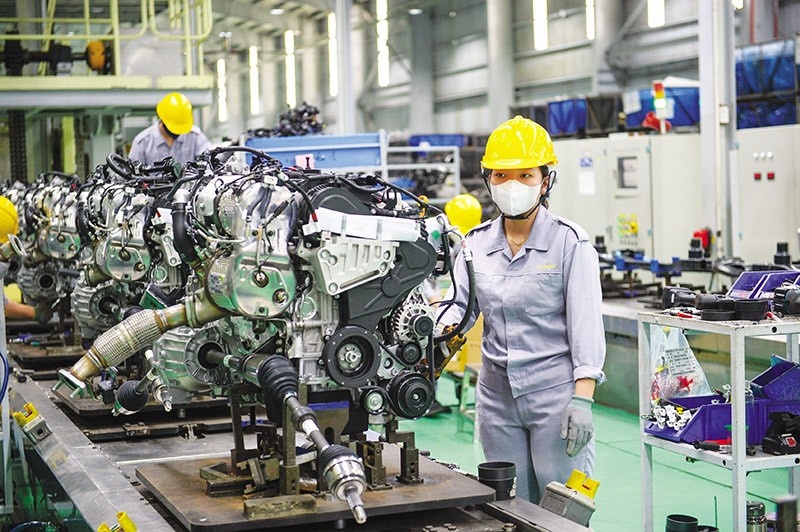Vietnam’s economic growth is currently facing significant challenges, with the International Monetary Fund (IMF) predicting a slowdown to 6.5% by 2025. This forecast stems largely from the increasing impact of tariffs imposed by the United States, which are expected to take a toll on the nation’s robust export-driven economy. Understanding the nuances behind this projection reveals a complicated interplay of global economic dynamics, domestic policies, and ongoing trade negotiations.

As of September 15, 2024, the IMF’s executive board noted a powerful rebound for the Vietnamese economy, which had grown by 7.1% in the previous year. This growth was supported by a combination of robust exports, resilient foreign direct investment, and favorable government policies. The momentum initiated in 2024 continued into the first half of 2025, with an impressive 7.5% year-on-year expansion, buoyed by substantial frontloading of exports, accelerated credit growth, and significant one-time government expenditures.
However, the outlook for the future is marked by uncertainty. The current account surplus hit a record 6.6% of GDP in 2024, but the anticipated slowdown to 6.5% in 2025 reflects the expected full-year ramifications of newly imposed tariffs by the U.S. These tariffs, announced in July, could significantly hamper Vietnam’s export capabilities. Added to this, the withdrawal of temporary government stimulus measures might create additional headwinds for economic growth moving forward.
The IMF has outlined several downside risks that could further impact Vietnam’s economic trajectory. Escalating global trade tensions and constricted financial conditions might diminish both exports and incoming investments. Domestically, there’s also the potential for renewed financial stress due to high corporate indebtedness and tightened financial circumstances. Nevertheless, the IMF suggests that successful implementation of infrastructure projects and structural reforms could provide a much-needed boost to medium-term growth.
Interestingly, the IMF’s findings echo concerns regarding the sustainability of Vietnam’s export-led growth model amidst evolving global trade policies, demographic changes, and emerging climate challenges. As such, there is a pressing need for policies that prioritize economic resilience and financial stability while promoting diversified and robust growth strategies.
The IMF emphasizes the importance of maintaining a flexible policy mix to respond effectively to the fast-evolving economic landscape. Given the current fiscal space, the government could consider more proactive fiscal policies to support economic activity temporarily. Conversely, the scope for easing monetary policy appears limited, necessitating close monitoring of inflation and foreign exchange risks, particularly given the buoyant economic and credit growth in the country.
Moreover, strengthening the fiscal framework will be crucial for ensuring sustainable growth from the planned public investments while maintaining debt sustainability. Key elements include enhancing public investment management, increasing revenue mobilization, and improving transparency in fiscal matters. A more robust approach to managing risks, particularly regarding public-private partnerships, will also be vital.
In the arena of financial stability, the need for bolstering resilience against economic shocks is underscored. This entails building liquidity and capital buffers while improving macroprudential oversight. Upgrading frameworks for insolvency, crisis management, and anti-money laundering/combating the financing of terrorism (AML/CFT) regulation, along with advancing regulations surrounding crypto assets, are also highlighted as necessary steps.
Furthermore, the authorities’ broad reform agenda has been well-received, but successful execution remains paramount. Enhancing productivity, refining the business environment, and reforming capital and labor markets are essential for long-term economic vitality. There’s also a call for increasing domestic demand and reducing external imbalances, accomplished by investing in essential infrastructure and enhancing social safety nets while promoting trade diversification.
Finally, the IMF stresses the importance of addressing the ramifications of policy mixing on Vietnam’s external imbalances and the needed responses to ensure economic stability. There’s an ongoing push for significant institutional reforms aimed at improving governmental efficiency and tackling data deficiencies, particularly in the external sector, to better navigate the complexities of an interconnected global economy.